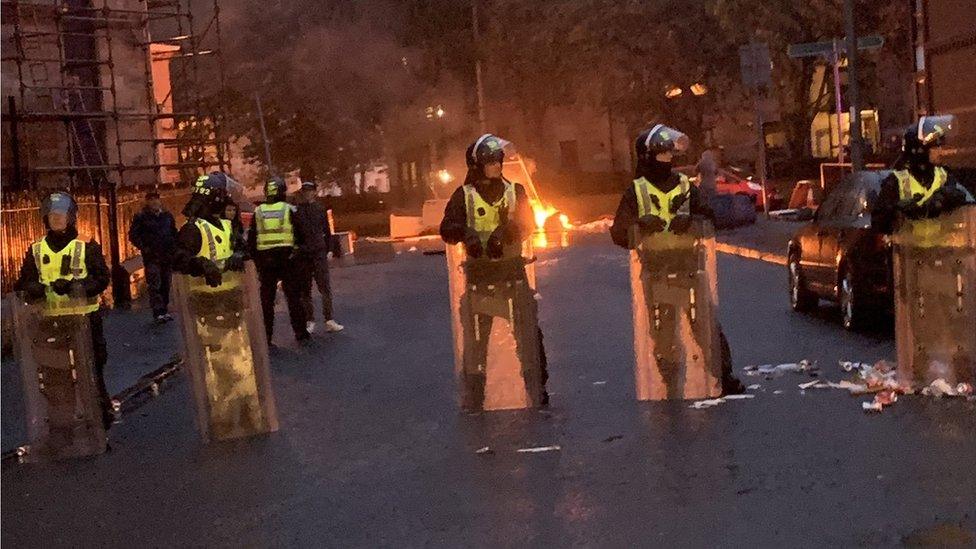Govan clashes: Sturgeon condemns 'sectarian' disorder in Glasgow
- Published
Roads were blocked as a result of the demonstrations
Nicola Sturgeon has condemned "sectarian disruption" at a march in Glasgow as "utterly unacceptable".
Riot police, a helicopter and dog units were called in when an Irish Unity march in Govan was met by hundreds of "disruptive" counter demonstrators.
Roads were blocked in what police described as "significant disorder" on Friday evening.
Glasgow City Council said it planned to stop "morons intent on bringing mayhem to the streets of our city".
Two men, aged 37 and 21, have been arrested and charged following the incident.
Police Scotland has said it will undertake a "thorough and robust" review of the events.
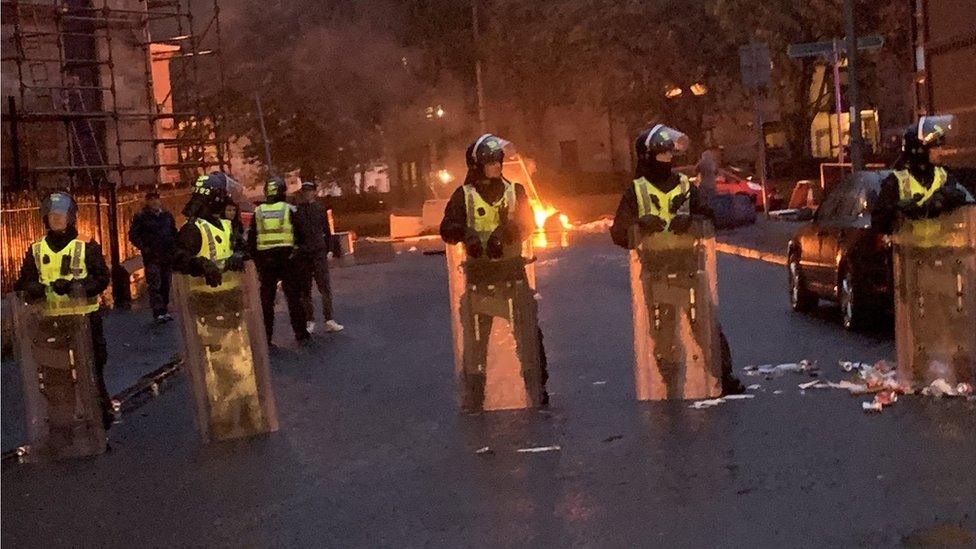
The Irish Unity march, led by the James Connolly Republican Flute Band, set off from Elder Park, Govan, at 18:30 but was soon met by a counter demonstration of "several hundred people" from loyalist groups.
Govan Road was blocked by officers and the Govan subway station was closed for a short period.
Witnesses reported the use of smoke bombs.
Allow X content?
This article contains content provided by X. We ask for your permission before anything is loaded, as they may be using cookies and other technologies. You may want to read X’s cookie policy, external and privacy policy, external before accepting. To view this content choose ‘accept and continue’.
The first minister described the scenes as "utterly unacceptable"
Ms Sturgeon continued: "Peaceful protest is a part of our democracy - violent and sectarian disruption is not".
Justice Secretary Humza Yousaf, whose Glasgow Pollok constituency was where the march started, tweeted praise for the Police Scotland response and said it was "utterly depressing to see this divisive thuggery on our streets".
Former first minister Lord McConnell called for more to de done at a national level to tackle sectarianism in Scotland.
He tweeted: "Enough is enough. Closing down the anti sectarianism summits after 2007 and ending the Scottish government-led drive for change in sport, marches, education and work was an act of political vandalism.
"We are reaping the consequences now. Time for action again. Warm words are not enough."
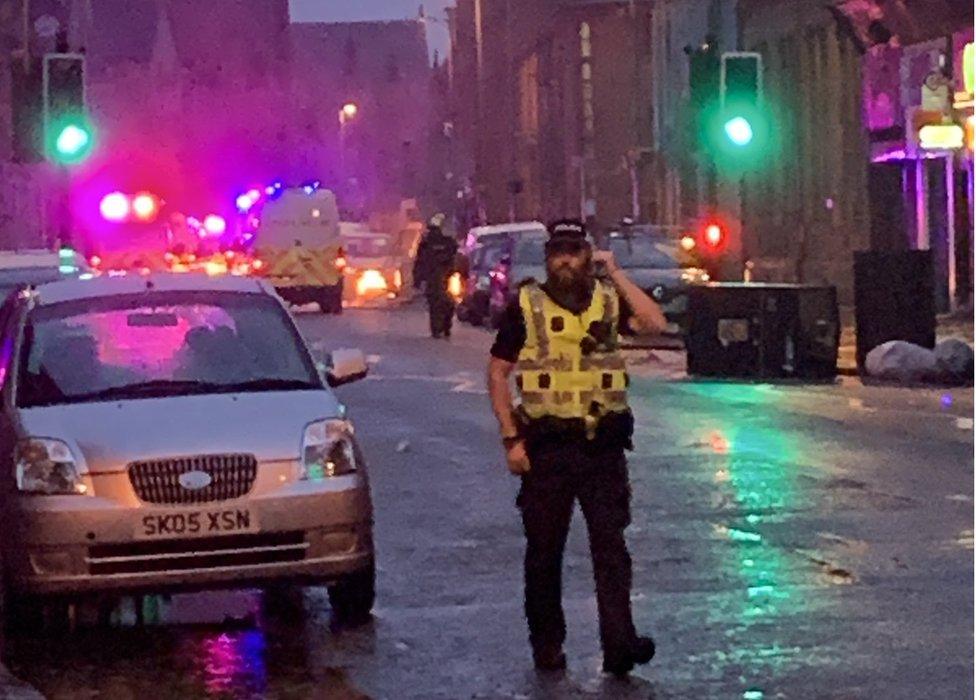

Ms Sturgeon and Humza Yousaf both welcomed a promised review by Glasgow City Council of its procedures on marches and parades.
Glasgow City Council gave the march permission to go ahead on 22 August. Police Scotland's only condition was that the Sean McIlvenna Republican Flute Band did not take part due to the "risk to public order".
Following the violence, the council tweeted a statement, external saying: "The council is clear that the law expects it to facilitate public processions; including those that some people oppose or find offensive.
"However, this cannot continue to be at the expense of the overwhelming majority of Glaswegians, who want nothing to do with these marches, or counter-protests.
"The city needs and wants fewer marches. We are prepared to consider any action that will protect communities from morons intent on bringing mayhem to the streets of our city".
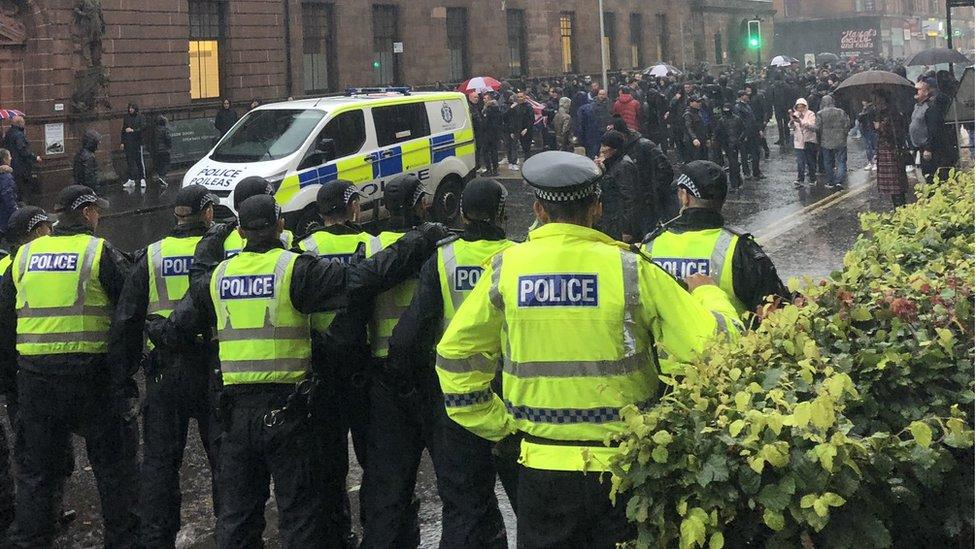
Ch Supt Mark Hargreaves said: "Police Scotland has a duty to facilitate processions and any peaceful protest, but this kind of behaviour by persons demonstrating against the parade is utterly unacceptable.
"It is extremely disappointing to see people acting in this fashion, causing fear and alarm to members of the public as well as putting many people at risk.
"Police Scotland will undertake a thorough and robust enquiry, and take any necessary action against those found to have been causing disruption."
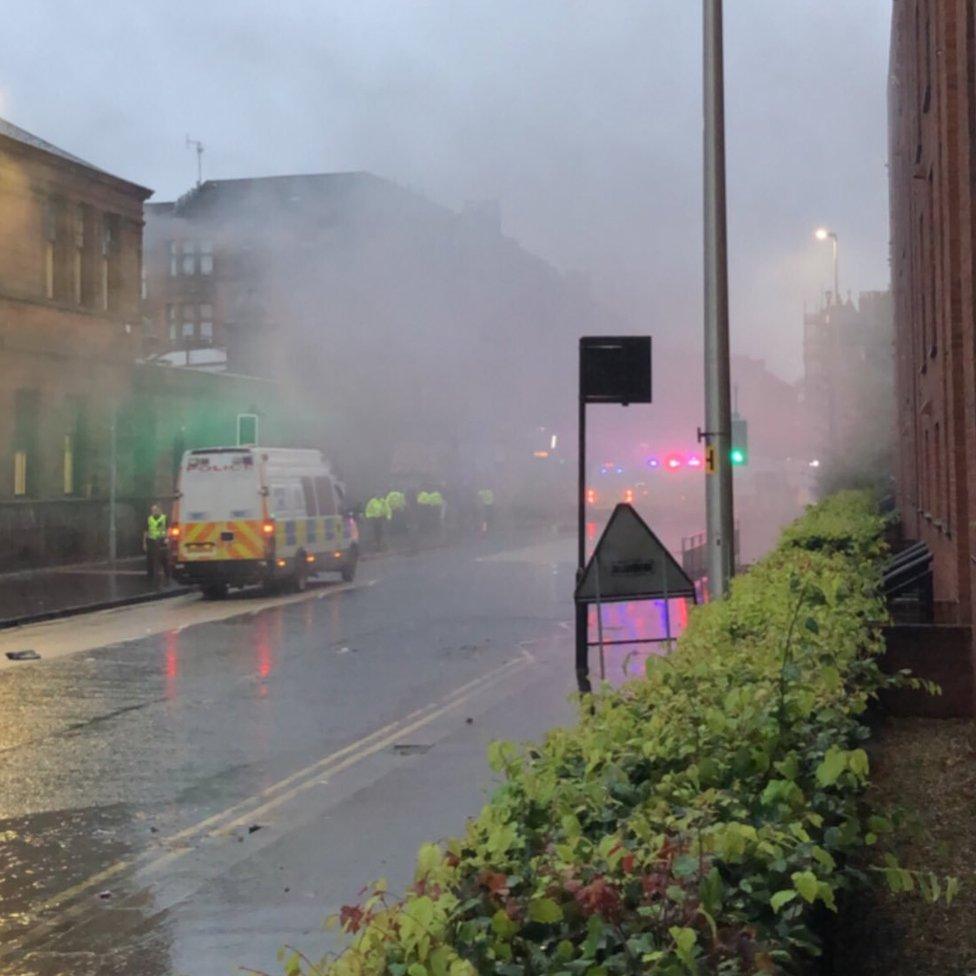
- Published30 August 2019
